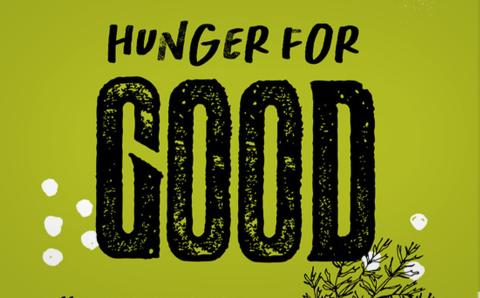Jesus taught us to pray, “Give us this day our daily bread” (Matt. 6:11). It can be hard to grasp the depth of that prayer, however, when you’ve got enough food in your pantry and refrigerator(s) to last a month. In our modern world, many of us are insulated from the precariousness of life. Our greatest frustration may be when our favorite brand of granola is unexpectedly missing from the supermarket shelves. But this is not the case for the 1 billion people in our world who live in extreme poverty, subsisting on less than one dollar per day. For them, “Give us this day our daily bread” is prayed with more urgency.
Jesus and his disciples probably would have easily identified with such people. Life in ancient Palestine was often harsh. As in some places today, water was an extremely scarce resource. Jerusalem and the province of Judea were nestled on the northern border of the harsh and unforgiving Negev Desert. On the east side of the Jordan River, the vast expanse of the Arabian Desert constantly encroached with its withering winds. Though there was enough runoff from the mountains to sustain a freshwater lake (the Sea of Galilee), Jesus’ own village of Nazareth and the surrounding province of Galilee were subject to frequent droughts and crop failure as throughout Old Testament times. Life was precarious, and “daily bread” was by no means assured.
I was confronted with my own distressing lack of appreciation for God’s provision during my ministry in Haiti. I vividly remember arriving at a pastor’s house famished and sore after a grueling day of travel that included several flat tires and getting stuck in the mud. Much to my delight, a mountain of rice, beans, grilled goat meat, beet salad, mangos, fried plantains, and other local delicacies had been lovingly prepared for our delegation. I noticed that our host and his family didn’t join in, but smiled approvingly as we devoured copious quantities of food. With my appetite finally satiated, I asked when the pastor and his large family would eat. Beaming with joy, he informed me that he, his wife, and their six children would eat what remained after we finished (which, to the shame of me and my delegation, was not much). I will never forget the look of satisfaction on the faces of those brothers and sisters whose supper we had just scarfed. They rejoiced in hospitality and gave thanks for what remained.
This fall, as we celebrate our national Thanksgiving holidays (a few weeks ago in Canada and a few weeks from now in the U.S.), may we all be blessed through the discipline of appreciation for the “small things” God provides for our physical life. Warm houses, electricity, water in the tap, and food on the shelf are not inconsequential. Our Lord is a good and gracious God. He faithfully answers the prayer “Give us this day our daily bread.” He “satisfies the thirsty and fills the hungry with good things'' (Ps. 107:9). Appreciation for God’s abundance is a helpful corrective to our tendency to become absorbed by our disappointments and unmet expectations for our churches, our careers, and our families.
Let me suggest one more opportunity to demonstrate our thanks for God’s abundance. Our ministry agencies, Thrive and World Renew, provide opportunities for us to advocate for hunger justice and to support at-risk communities in North America and around the world. Take a look at the stories in this month’s Our Shared Ministry section to see how you can join in these important ministries.
About the Author
Rev. Zachary King is the general secretary of the CRCNA. He is a member of Cascade Fellowship Christian Reformed Church in Grand Rapids, Mich.








